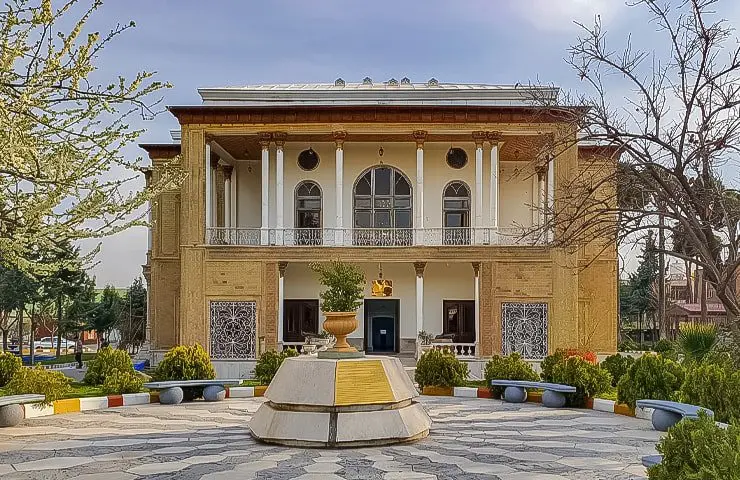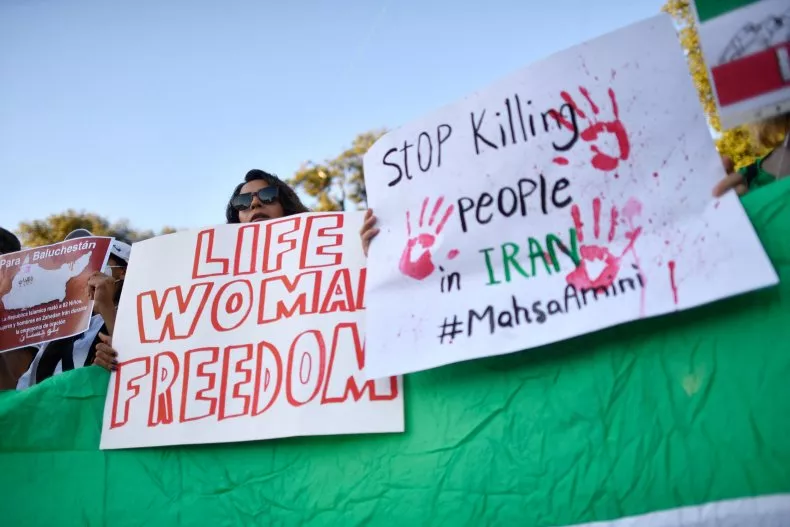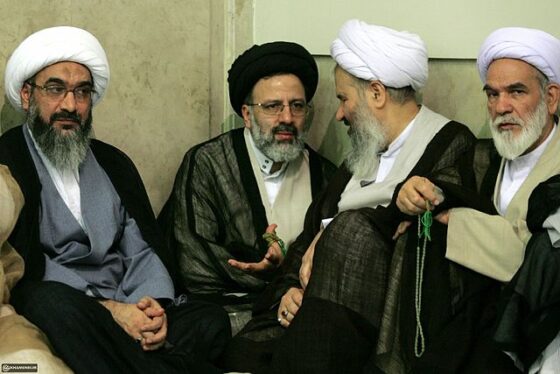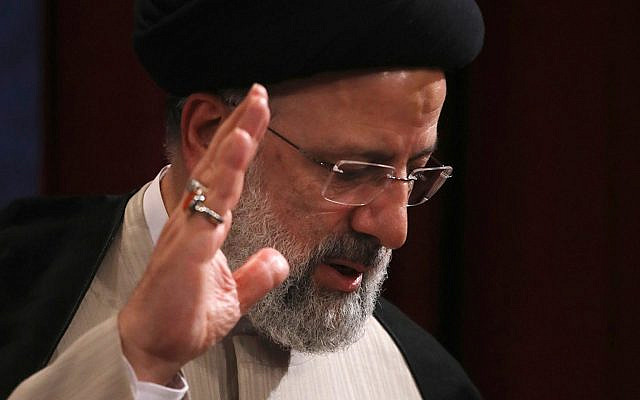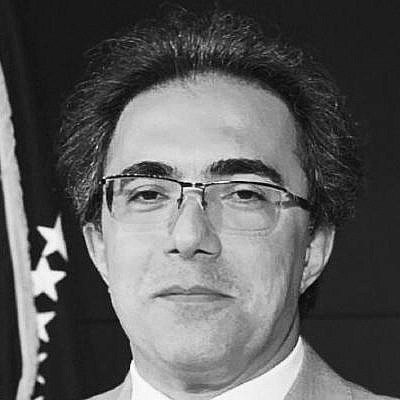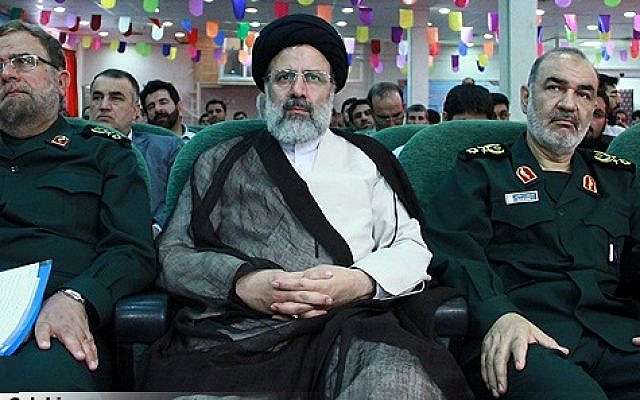Trump to Address the Nation on Iran
Published on: 2020-01-08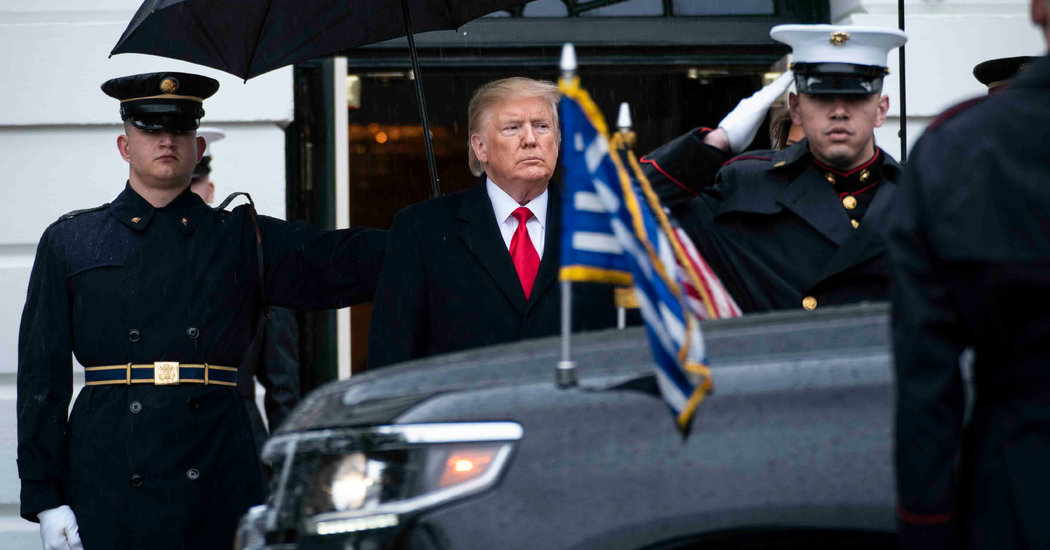
The morning after Iranian missiles fell on bases housing American troops in Iraq, the president will discuss what comes next in the confrontation with Tehran.
WASHINGTON — President Trump plans to address the nation at 11 a.m. from the White House to discuss the confrontation with Iran as the world waited to see if he and Tehran will pull back from the edge of a wider war.
His statement will come the morning after Iran fired a reported 22 ballistic missiles at two military bases in Iraq that house United States troops in response to last week’s American drone strike that killed Maj. Gen. Qassim Suleimani, commander of Iran’s elite security and intelligence forces. No American troops were reported killed in the attacks.
In the hours since, some analysts expressed cautious optimism that the missile strikes might prove the end of the immediate conflict rather than the start of a larger confrontation that could spiral into a full-fledged war. Iran’s foreign minister, Mohammad Javad Zarif, said afterward that Iran had “concluded proportionate measures” in its retribution for General Suleimani’s death, and Mr. Trump’s initial response seemed to indicate an openness to letting it go without further reprisals since no casualties were reported.
But analysts cautioned that even if the two sides ease off a further military clash in the short term, the conflict could very well play out in other ways in the weeks and months to come. Iran has many proxy groups in the Middle East that could stir trouble in new ways for American troops or American allies like Israel and Saudi Arabia, and American experts remained wary of a possible Iranian cyberstrike on domestic facilities.
President Hassan Rouhani of Iran made clear that his country still saw its mission over the long run as driving the United States out of the Middle East after the killing of General Suleimani. “Our final answer to his assassination will be to kick all US forces out of the region,” Mr. Rouhani wrote on Twitter.
Ayatollah Ali Khamenei, the country’s supreme leader, likewise suggested on Wednesday that an incremental operation would not be the end of the clash. “What matters is that the presence of America, which is a source of corruption in this region, should come to an end,” he said in a speech to a hall filled with imams and others, who chanted, “Death to America!” and “Death to Israel!”
The operation against General Suleimani may prove to have consequences beyond the direct relationship with Iran. Outraged that the general was killed after arriving at Baghdad International Airport, Iraq’s Parliament voted without dissent to expel the 5,000 American troops from the country. Such a decision would still have to be enacted by the caretaker government, but the Pentagon has begun preparing for the possibility of losing its bases in the country nearly 17 years after the invasion ordered by President George W. Bush.
Mr. Trump’s televised statement on Wednesday morning from the Grand Foyer of the White House will be his first formal effort to explain the situation to the country since ordering the drone strike on General Suleimani last Thursday. He has fired off tweets and spoken with reporters a couple of times since then without making an official speech outlining his thinking.
The administration’s messages up until now have at times been conflicting and confusing. The president was forced to walk back threats to target Iranian cultural sites after his defense secretary made clear that would be a war crime. The American headquarters in Baghdad had drafted a letter saying it was withdrawing from Iraq only to have the Defense Department say it was a draft document with no authority.
And the administration has not given a detailed public explanation of its reasoning for conducting the strike now, given that General Suleimani has been responsible for killing American soldiers and stirring trouble in the region for many years. Officials at times have asserted that the administration was acting to forestall an “imminent” threat and at others have stressed that it was responding to his past actions.
Congressional Democrats have complained that the administration has not been much more forthcoming in a classified war powers notice or in briefings, raising questions about the nature of the intelligence used to justify the drone strike. Gina Haspel, the C.I.A. director, and other administration officials were scheduled to brief the entire House and Senate on Wednesday.
The White House has said the president acted under his constitutional authority to take action in self-defense as well as in keeping with the power granted by Congress in a 2002 measure that authorized Mr. Bush’s invasion. Speaker Nancy Pelosi has said she would hold a House vote this week on legislation meant to rein in the president’s ability to go to war with Iran, although such a measure presumably would not be accepted by the Republican-controlled Senate, much less signed into law by Mr. Trump.
General Suleimani, commander of the elite Quds Force of the Islamic Revolutionary Guards Corps, was the architect of Iran’s efforts to extend its influence throughout the Middle East. He helped direct wars in Iraq, Syria, Lebanon and Yemen as he sought to establish a regional bloc of Shiite power, and he was held responsible by the United States for attacks on American troops in Iraq that killed at least 600 back during the height of the war.
More recently, American officials pointed to General Suleimani as the force behind a Dec. 27 rocket attack on a base in Iraq that killed an American civilian contractor. They said he had traveled the region in recent days as part of preparations for a future attack that could have killed hundreds of Americans; however, they provided scant details and no evidence.
Mr. Trump has seen Iran as the main enemy of the United States since taking office, withdrawing from the nuclear agreement brokered by President Barack Obama and reimposing sanctions in hopes of crippling its economy.
He has signaled in the past that he would be willing to negotiate without preconditions, but diplomacy now appears even unlikelier than before as Tehran vows to abandon constraints in the Obama agreement and proceed with developing its nuclear capabilities.
The Iranian missile strikes, which began early Wednesday morning local time or late Tuesday in Washington, targeted Al Asad Air Base, long a hub for American military operations in Iraq, and another base in Erbil in northern Iraq, which has been a home for Special Operations forces in the fight against the Islamic State both in Iraq and in Syria.
In the hours afterward, Mr. Trump seemed to indicate that the Iranian missiles did no meaningful damage. “All is well!” he wrote on Twitter. “Missiles launched from Iran at two military bases located in Iraq. Assessment of casualties & damages taking place now. So far, so good!”

